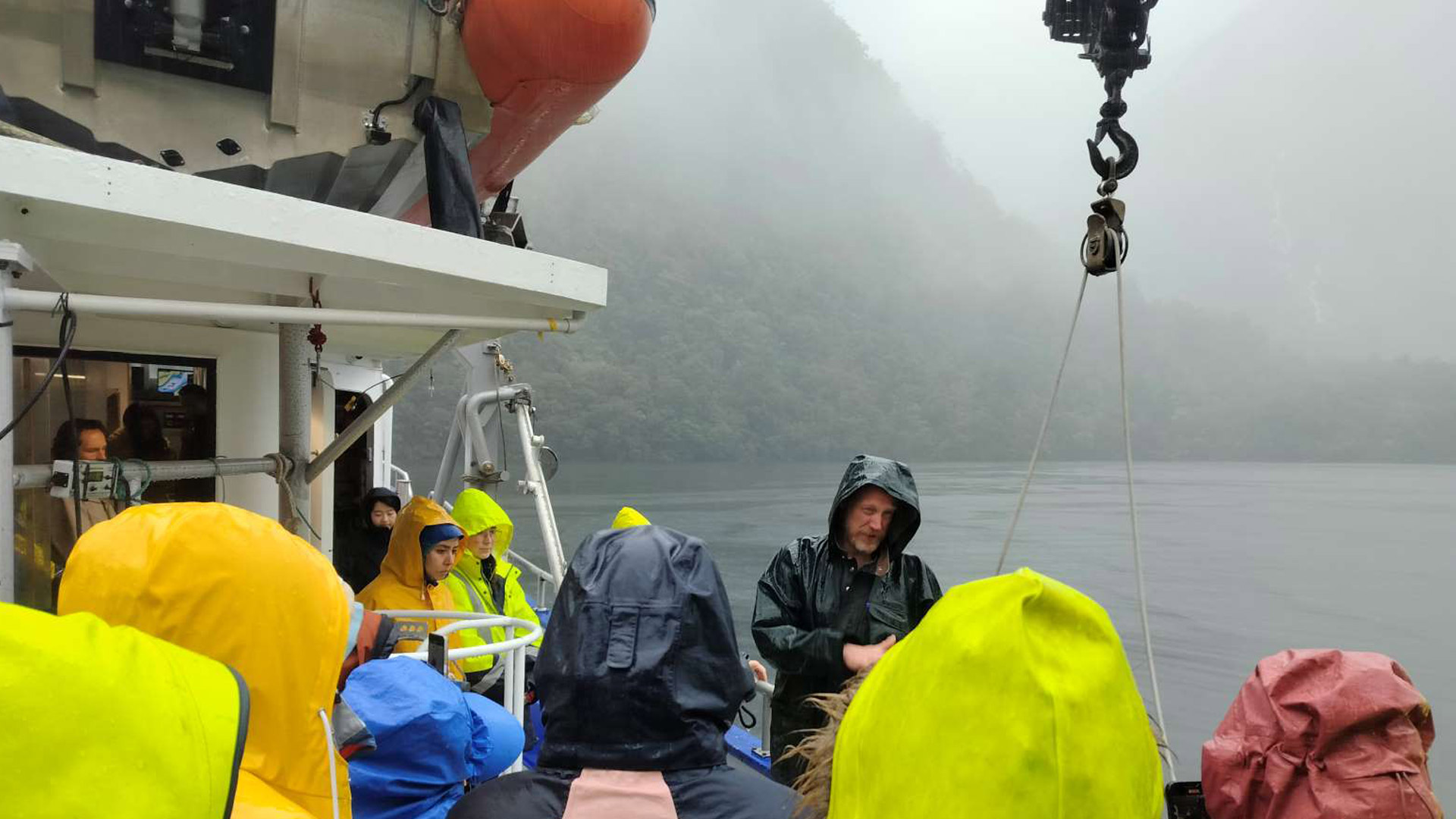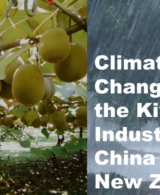Winds of Change explores carbon sinks in Doubtful Sound

4 December 2023
Strong Asia-Pacific connections were forged in Fiordland in November, as Winds of Change members from Chile, China, and New Zealand journeyed through Doubtful Sound to collect ancient carbon as part of a momentous climate science field trip.
The Winds of Change field trip was the first in-person activity to include members from all four years of Winds of Change (2020-2023). With members present from the Latin America and North Asia programmes, the participants spanned the Asia-Pacific and various stages of study and career development.
The 18 strong group was emblematic of what makes the Winds of Change special. The programme has grown into a unique network of over 100 passionate climate and sustainability focused people from diverse fields and cultures.
During final preparations for the trip, the team received a boost with news that the Winds of Change has been shortlisted for an international Sustainability Education Award at the QS Reimagine Education Awards – known as the ‘Oscars’ for education innovation. This was great recognition of the efforts to make the programme a valuable study and career enrichment experience, through online learning, mentored project work, and immersive field trips.
The Doubtful Sound field trip deepened the trusted bonds that have formed within the group, laying foundations for long-term collaboration among the members. This bond was aided by an indoor rock-climbing session in Queenstown on the first morning, where the mostly-first timers motivated each other to overcome any fears and push themselves literally to new heights.
On the second day, having journeyed to Te Anau and then across Lake Manapouri, the group joined Winds of Change founder, Associate Professor Chris Moy and his fellow researchers aboard the University of Otago research vessel, RV Polaris II. Their mission was to observe scientific work for a globally significant research project, which aims to understand and protect the role of fiords as natural carbon sinks.
Fiordland is a natural carbon sink because of its steep rainforest which plunges into deep and sheltered waters. Over many thousands of years, trees have absorbed carbon and descended into the fiords, whose muddy depths hold the carbon almost permanently—a significant quality as de-carbonisation of the atmosphere becomes increasingly urgent.
As the Fiordland rain fell around the boat and cascaded over cliffs in spectacular waterfalls, the Winds of Change group observed while the crew lowered a moon probe-looking contraption into the water, sending it to the floor 80 metres below. The moon probe’s job was to retrieve core samples from the muddy depths. Researchers analyse the samples to measure the carbon trapped within the layers of mud accumulated at the bottom of the fiord for many millennia.
With the moon probe back on deck after a successful mission, some members braved the heavy rain to help sort the metallic grey, sulphur-smelling mud into different containers for analysis. Others enjoyed the views, with the Chilean members contemplating the similarities with the fiords of their home nation 9,000 km to the east.
The night before, in Te Anau, Chris Moy had given the group an overview of the geographical connections between New Zealand, Chile, and China. He delved into the science of the carbon sink project, its significance to climate change responses, and the implications for fiords in Chile and other locations. This was immensely valuable not only to the scientists among the group but also those working in areas such as climate finance, marine protection, and sustainability education. They could join the dots between the science and their own work.
A broader cross-disciplinary view and learning new perspectives on common issues are key features of Winds of Change. Rich cross-pollinating conversations could be heard as the group travelled by bus and boat across the South, from Queenstown to Te Anau, to Doubtful Sound, and back again. The conversations will continue and there is strong commitment within the group to turn these conversations to collaborative action in the years ahead.







